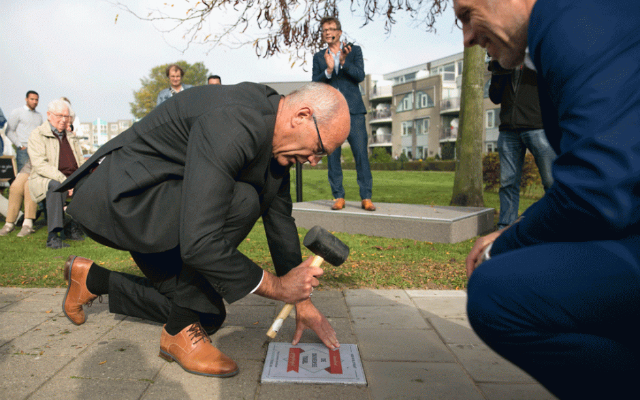On the street today: paving tiles of recycled residual waste
A sustainable tile that is just as clean and safe as a ‘regular’ paving tile and is produced from recycled residual household waste, partly from the own municipality. Duiven is the first municipality where this tile will adorn the streets from now on, under the name "De Duivense Tegel" ("The Duiven Tile").

This showcase was created jointly by concrete producer De Hamer, waste processing and power company AVR, and Mineralz, a Renewi subsidiary. They developed a process in which bottom ash is processed into FORZ® granules, a sustainable, clean and safe sand and gravel substitute that is a resource for the Sustainable Tile. That way the partners contribute materially to the transition to a circular economy. A unique aspect of the product is that, in addition to paving tiles, each municipality receives a custom-designed communication campaign to show their citizens what their municipality is doing about a circular economy. According to AVR's Jeanine van de Grootevheen, it is a great step towards a circular society. "The government's goal is to make our economy run on recycled resources in 2050. Together with our partners, we wondered how we could make a first step towards that goal as soon as possible. Five years of research have led to this clean, safe and sustainable tile.” In addition to developing the tiles, they also thought about how to maximally support the municipalities in question. Van de Grootevheen: “We noticed that the story behind this sustainable tile draws a lot of attention. Waste that is partly collected in the municipality and reused in a sensible manner, literally on people's doorstep. That is why we developed a catching public campaign for the municipalities involved that they can easily utilise.”
Working towards a clean society
Mineralz's Rob Bleijerveld explains how it works: “On average, each Dutch citizen produces some 150 kilos of residual household waste every year. That is what remains after waste separation, so without glass and paper. AVR incinerates that residual household waste. Then the bottom ash is taken to Mineralz. Reprocessing that bottom ash starts with the recovery of metals, such as copper and aluminium. That way, valuable resources that had not been separated by the households, are still recovered. What remains is what they call a mineral fraction that is washed to make it suitable for application in concrete products. The result is FORZ® granules; a sustainable, clean and safe substitute for sand and gravel.”
How solid and safe are these paving tiles?
According to Eric de Groot, commercial managing director BTE group, safety has been a major issue on developing the sustainable tiless. De Groot: “The quality of the products manufactured this way is equivalent to that of regular concrete products and they are supplied under KOMO certificate and the Dutch Soil Quality Decree. The additional advantage of these products is that they are a simple way for municipalities to help them meet their circularity and recycling objectives.” If in future the tiles should have to be removed from the street again, they can be recycled once more. When discarded, the concrete products are suitable for reuse in new concrete products without any adverse influence on the concrete quality. More information: www.duurzametegel.nl

